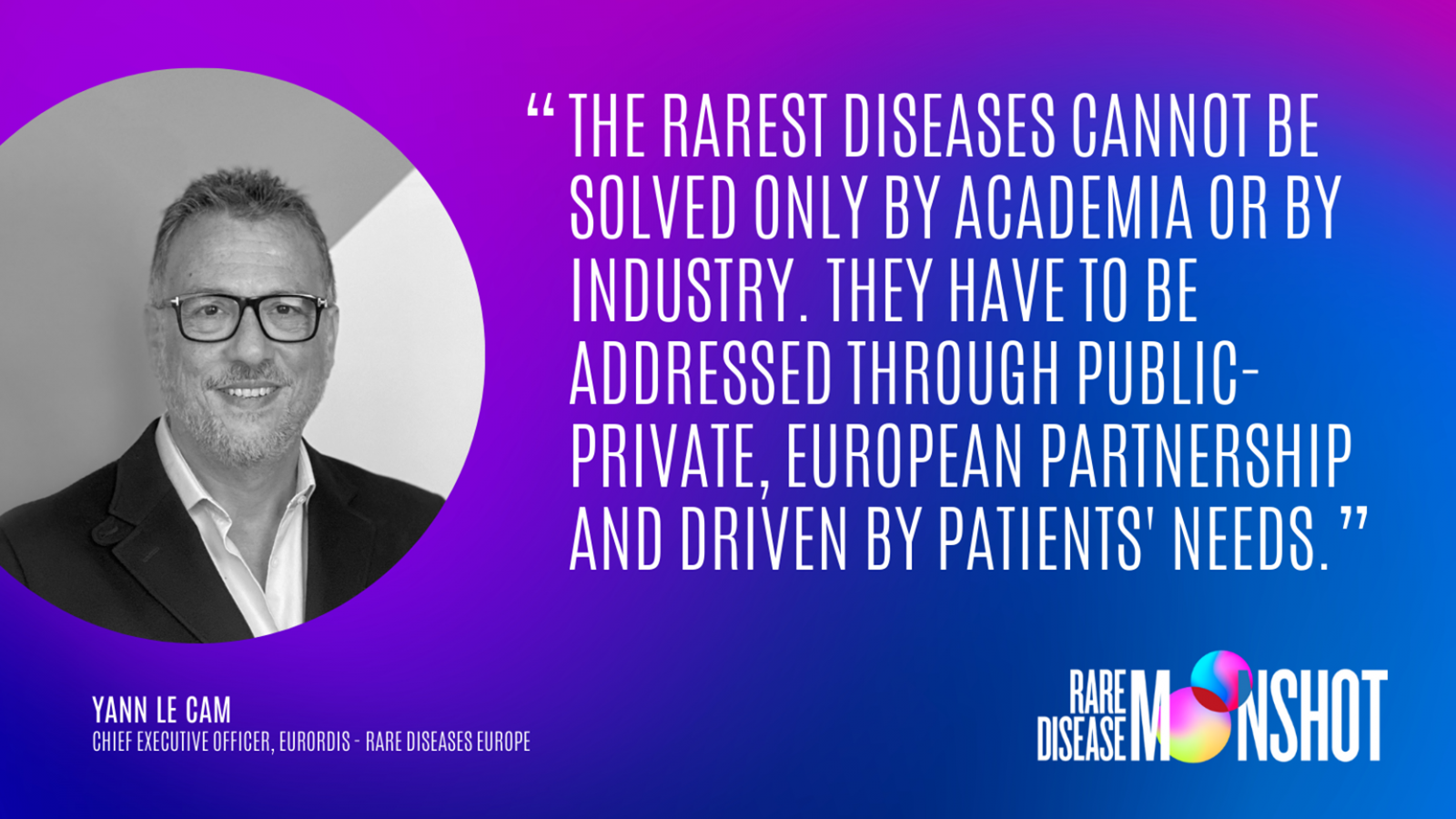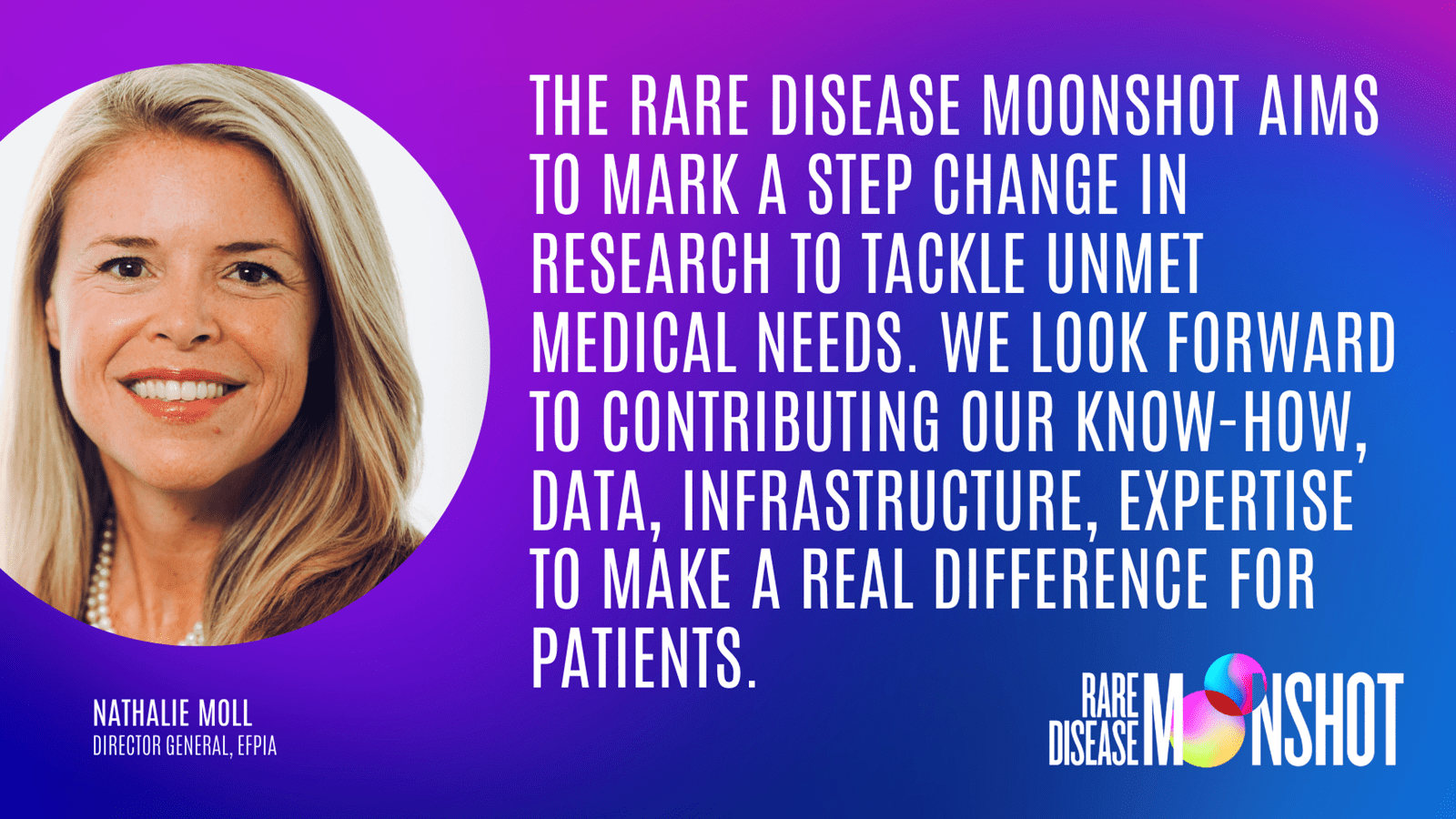A moonshot means an ambitious attempt at something previously thought to be impossible. That was the U.S. space program in 1961 when it accepted a presidential challenge to go to the moon. Eight years later, the world watched it happen.
In that bold spirit, a coalition of seven European organizations recently joined together to launch a rare disease moonshot. Here’s what the coalition aims to accomplish:
- Increase collaboration and reduce fragmentation.
- Create public-private partnerships to bring experts together.
- “Enhance the translational research ecosystem” to get research going on new therapies.
- Optimize clinical trials and regulatory pathways.
- Build infrastructure that speeds up the clock, so that patients get diagnosed and treated more quickly.
“The Rare Disease Moonshot aims to mark a step change in research to tackle unmet medical needs. We look forward to contributing our know-how, data, infrastructure and expertise to make a real difference for patients,” said Nathalie Moll, Director General of the European Federation of Pharmaceutical Industries and Associations (EFPIA), of which CSL Behring is a member.
EFPIA represents the biopharmaceutical industry in Europe and counts as members 37 national associations, 38 leading pharmaceutical companies and a growing number of small and medium-sized enterprises.
In addition to EFPIA, the coalition includes the Critical Path Institute (C-Path); the European Confederation of Pharmaceutical Entrepreneurs (EUCOPE); the European Clinical Research Infrastructure Network (ECRIN); EuropaBio; EURORDIS-Rare Diseases Europe; and the European Infrastructure for Translational Medicine (EATRIS).
Without an increase in the pace of research progress, it could take more than 100 years to find treatments for the estimated 7,000 rare diseases, according to the coalition.
The moonshot springs from “the belief that the science and translational capability gap in rare diseases cannot be addressed by one party or even one sector alone, nor can it be optimally served by a ‘patchwork’ of unrelated initiatives,” the coalition said in its December 2022 announcement.
See the full announcement: Scaling up public-private partnerships to accelerate research into world’s rarest diseases




